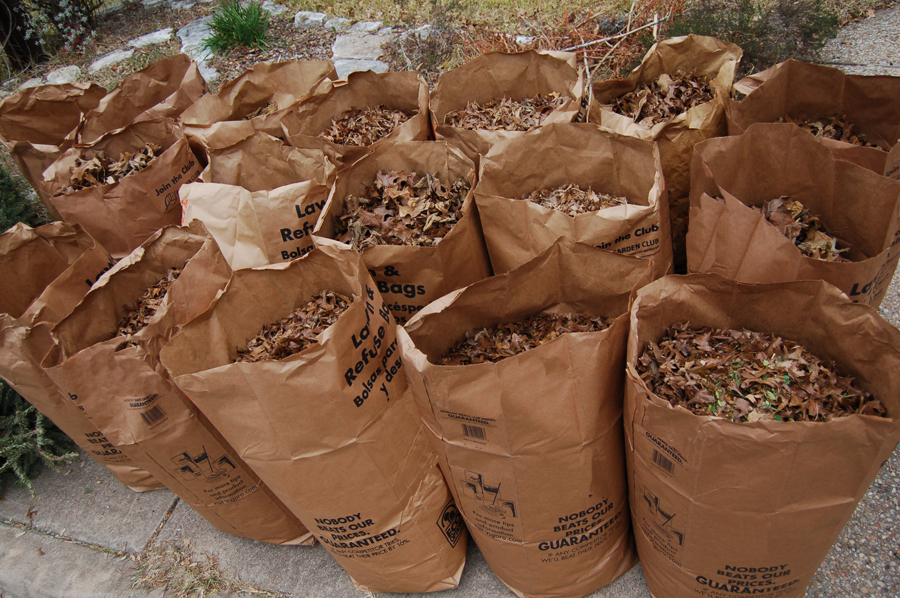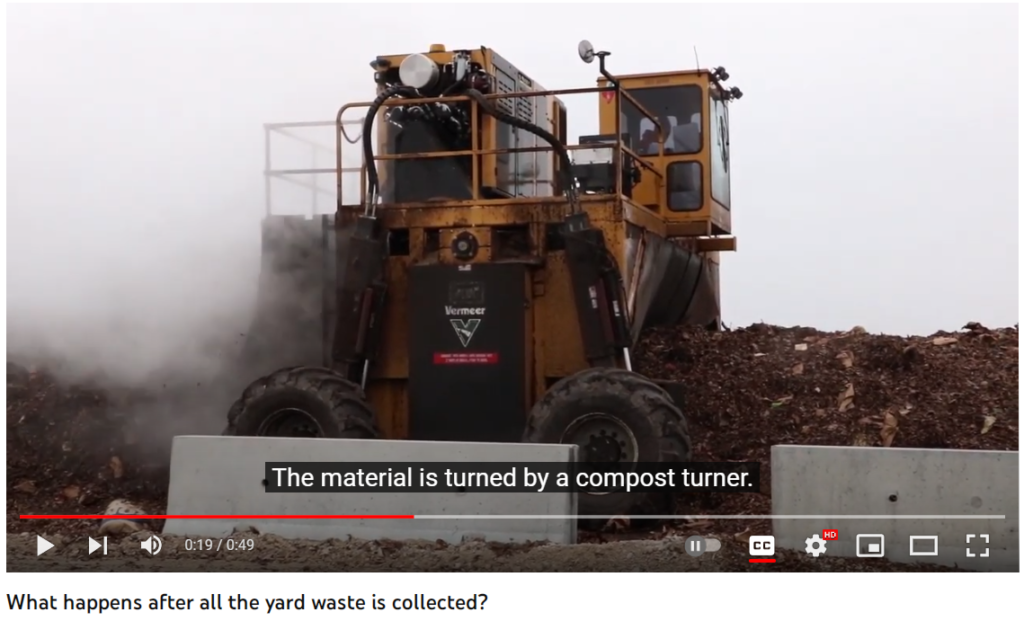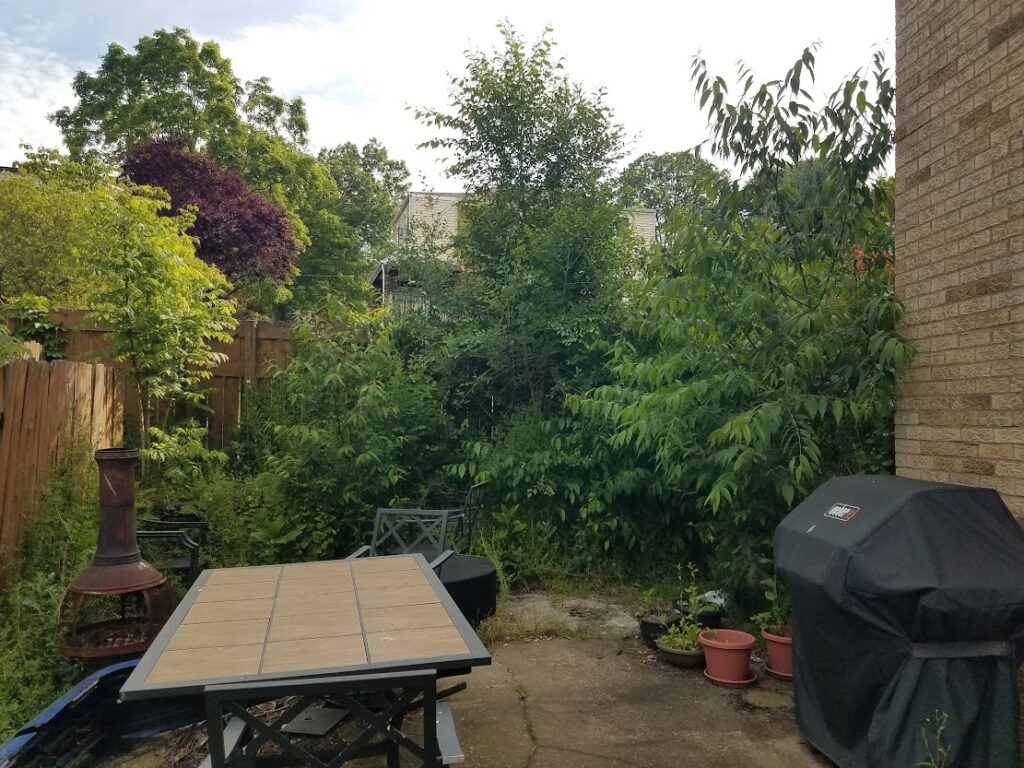In my earlier days, I used to be a big fan of going out for my birthday, having a large group in tow, and doing fun and exciting things. Since the pandemic (also since starting my current job), I have toned that down considerably, and last year on my birthday I wanted nothing more than to spend the day in my garden, without any sort of schedule or social obligations. It was glorious. So glorious that by the time this post goes live today, I will be doing the same thing (much to the bafflement of some and the admiration of others).
While my front yard is now looking pretty decent, the back yard is showing signs of severe neglect, much like a massively overgrown forest trail – and that’s where my attention will be this holiday weekend, now that we have hit garden cleanup weather. I have written before on this blog about the importance of leaving your leaves and spent flowers where they are in the fall [1] and not starting any garden cleanup until overnight temperatures in the spring are reliably in the 40s overnight.[2] Now that I am once again starting to clear brush and weeds out of my yard, my mind turns to what happens to that massive amount of debris once I’ve dealt with it – and my version of “dealing with it” is very different from the rest of my neighborhood… mostly because I’ve just been piling it next to the shed, stuck in a state of frustrated analysis paralysis for several years now.

Image credit: [3]
As people clear their yards in both fall and spring, it’s not uncommon to see stacks of large brown paper landscaping bags, full of yard waste, at the ends of driveways. Our neighborhood is no exception, and our municipality even offers a once-monthly dumpster for yard waste from May through August, noting all of the required guidelines about maximum size of branches and using only biodegradable bags. Many yard waste collection services wax poetic about the importance of diverting these useful, valuable, biodegradable materials from landfills, where they will create methane,[4] but I was frustrated and disappointed to learn that – much like we see with curbside recycling – this waste stream often does not go where we think it will.
Don’t Believe Everything You Think
This whole exploration began several years ago when I wanted to learn more about our local waste streams. I was curious about local compost facilities, since our yard waste was allegedly picked up for compost. I had never heard of any composting facilities nearby, but there must be if they took yard waste, right? Unfortunately, the more I’ve learned, the more discouraged I’ve become, and the more my husband has become frustrated with our bottomless brush pile as I’ve refused to dispose of endlessly regenerating weeds, brush, and branches in any way other than what I’ve deemed “responsible.”
The first thing I did was call my municipality’s office one fall when brown leaf bags began appearing on curbsides. My question was where the bags went after they were picked up, but the official couldn’t tell me much: the bags were collected on a separate truck (encouraging), the bags had to be made out of biodegradable materials (also encouraging), and that Waste Management could probably tell me more. Next I called Waste Management to ask my very unusual question, but the person who answered didn’t know, took my information, and said someone would call me back. I did ultimately get an answer, but I didn’t like what I heard: it seems everything that gets picked up – at least in our municipality – goes to the landfill.

Image credit: [5]
I was incredibly disappointed but also confused. We were given strict instructions to make sure that our yard waste was of a certain size, bundled only with biodegradable twine, and packaged only in biodegradable bags; those bags were even picked up separately from the other garbage. Why go to all that extra trouble if everything was going to be landfilled anyway? Still in a state of frustration over this situation (it’s constant, really), I found myself stuck behind a garbage truck on my way to work one morning, and it was, in fact, a truck picking up the leaf bags. I stopped my car, ran after the truck, and asked the bewildered young man if he knew where they were taking the yard waste. He confirmed that that truck would go to the landfill, but he did say that when he worked another route in a different county, that truck took the waste to a composting facility. I suppose that keeping pickup requirements standard helps minimize mishaps if the waste should actually gets composted, but it is still frustrating to think that – as with curbside recycling – just because it gets picked up doesn’t mean it’s not just getting trashed.
Weighing Options
Fast forward to this spring and the specter of my ever-growing brush pile increasing in size after another round of virtual deforestation in my backyard. I was excited about the prospect of the municipal dumpster because I know there is a company nearby that rents dumpsters for yard waste. Unfortunately, when I called our municipal office again to see what company provided the dumpster, it was, again, Waste Management. I then called the other company, Michael Brothers Hauling & Recycling,[6] which I have highlighted on this blog before as the place where I take all of my recyclables … and “recyclables.”[7] They do offer dumpster rentals for yard waste, though as big as the brush pile is, I’m not sure it justifies getting a whole dumpster. (I may feel differently after I’m done in the yard this weekend – we’ll see.) You can drop off yard waste yourself at their North Hills or South Hills locations, but they do charge per ton, with a $40-50 minimum, so they’re not exactly set up for residential services.
I will note that we live in the suburbs, not in the City of Pittsburgh proper, and while guidelines are similar for yard waste packaging and pickup, the City has its own waste contracts. I have not (yet) discovered what the City’s waste stream is like, but if you have inside information there, please share in the comments below! If you live within city limits and are concerned about yard waste ending up in the landfill, the City’s website lists three dropoff locations (East End, West End, and Hazelwood), though I didn’t get any answers or calls back from them when I tried to learn more about what they do with the waste or where it goes. There does appear to be a fee for dropping off yard waste at these locations, and I am unclear if they check for City residency.[8]

Ultimately, RecycleThisPittsburgh simply encourages you to keep your leaves at home when you can, bag them up for collection/drop off if you must, but never, ever send them to a landfill.[9] Now, in an ideal scenario, we could all simply compost our yard waste at home, but not everyone has sufficient space to do that. We have a sizeable yard and could probably do leaves and weeds if I put my mind to it, but we still run into difficulty with large branches – and those would definitely need to be cleared away before starting on a third compost pile (the first two being kitchen scraps and kitty waste [10]). We have, in previous years, burned large, dry branches, but that can take time, especially if the brush pile seems to expand faster than it can get used in a fire pit.
About ready to give up and just order a dumpster, I stumbled upon a new option while doing research for this particular post. On the City of Pittsburgh’s website, they had a list of other recycling resources, last updated in 2020, so I wasn’t too optimistic.[11] On that list was a company I knew well because I’ve used them in the past for commercial-scale food waste composting: AgRecycle.[12] They are local to Pittsburgh, and according to their website, they accept residential yard waste for composting – something I never knew before. They charge $15-25 by the truckload, and once I figure out how much I’ll be taking over there, I’ll also work to determine the most cost-effective option for us.
Knowing this new information, I am much more excited about heading into the wilds of my backyard this weekend and clearing some space so we once again have a useable patio. If you are looking for a way to divert your yard waste from the landfill, I encourage you to explore the options listed above if you’re in the Pittsburgh area, to ask good, hard questions of your local municipality, and even find ways to get involved to support more closed-loop waste streams in your area.
Best of luck and happy yard work!
Thanks for reading!
[1] https://radicalmoderate.online/fall-garden-cleanup/
[2] https://radicalmoderate.online/spring-garden-cleanup/
[3] https://yourcleanwater.org/yard-waste-disposal/
[4] https://radicalmoderate.online/real-vs-plastic-christmas-trees-part-3/
[5] https://www.youtube.com/watch?v=4MKFYE9QQKM
[6] https://michaelbrothershauling.com/
[7] https://radicalmoderate.online/plastic-waste-options-in-pittsburgh/
[8] https://pittsburghpa.gov/dpw/leaf-waste
[9] https://recyclethispgh.com/item/leaves/
[10] https://radicalmoderate.online/kitty-litter-compost/
[11] https://apps.pittsburghpa.gov/redtail/images/9512_Commercial_Haulers_List.pdf
[12] https://agrecycle.com/solutions/
0 Comments